This year, we are excited to bring you a collection of interviews and research highlights that showcase India’s substantial impact in scientific and technological innovations.

National Technology Day is held each year on May 11 to celebrate India's achievements and advancements across science and technology. This commemorative day recognizes the contributions of Indian researchers, scientists, and engineers who have played a pivotal role in technological innovations.
In today’s world full of complex challenges related to food, energy, water and environment, the integration of science, technology & innovation (STI) can only help us find sustainable solutions. The deeper involvement of technology and innovation has bridged the gap between science and society, rightly mentioned in the Science Technology & Innovation Policy 2013 as “Science technology & innovation for the people is the new paradigm of Indian STI enterprise.”
As India prepares to foster an inclusive and robust ecosystem, some of the key transformational technological developments that the country promises to witness in the coming years are covered under these missions: National Quantum Mission, Artificial Intelligence Mission, India Semiconductor Mission, National Green Hydrogen Mission and National Mission on Bioeconomy. Through these strategic initiatives, the aim is not only to be self-reliant but to also actively contribute towards the global technological development.
To celebrate this occasion, we are excited to showcase a collection of interviews, research collections, and more that highlights the role of basic sciences in technological development and beyond.
Read Insights from the Scientific Community in India
In these short interviews, researchers and educators talk about the various aspects of dynamic research and technological impact in the country. These interviews help foster greater communication among the scientific community.
Ramesh Raliya
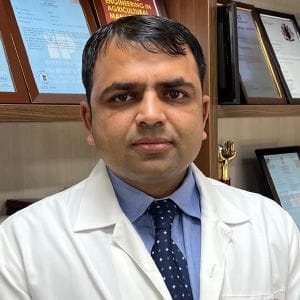
Dr. Ramesh Raliya, with a background rooted in farming, boasts an illustrious academic career, holding a master’s degree in plant biotechnology, a Ph.D. in Nano-Chemistry, and a Postdoctoral fellowship in Nanotechnology from Washington University in St. Louis, United States.
Dr. Raliya is recognized globally for his groundbreaking contributions—particularly his patented innovations like Nano Urea and Nano DAP, which have transformed agricultural practices across 80 million acres and 90 crops. He has spearheaded innovative methods for synthesizing inorganic and organic nanomaterials with independently controlled properties, with applications ranging from crop nutrition and protection to biomedical uses such as drug delivery, therapeutics, and imaging—as well as in water chemistry, energy storage materials, sensors, and environmental interactions.
Currently, Dr. Raliya serves as a Co-Founder of Smart Aerosol Technology and holds the position of Chief Scientific Officer at Tidal Vision, in addition to serving as an Associate Editor of ACS Agricultural Science & Technology. With three published books, more than 80 research articles, and recognition as an inventor on more than 20 patents, Dr. Raliya's contributions are substantial. As a committed mentor, he has also held positions as Adjunct Faculty at prestigious institutions like IIT Delhi and the University of Miami. Dr. Raliya's multidisciplinary background, entrepreneurial spirit, and dedication to sustainability firmly establish him as a leader driving positive change in the fields of nanotechnology and agriculture.
Vikram Vishal
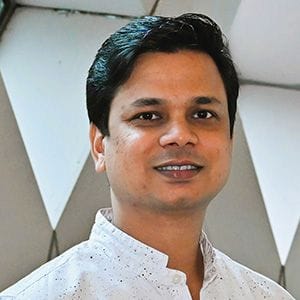
Prof. Vikram Vishal serves as a Professor in the Department of Earth Sciences, IIT Bombay, and holds a Ph.D. degree jointly from IIT Bombay and Monash University, Australia. His academic journey includes roles such as Visiting Professor at the MIT Energy Initiative, MIT, United States; Adjunct Faculty at IIT Bhubaneswar, India; and Monash University, Australia. He also implemented his post-doctoral research at Stanford University, United States.
Since 2017, Professor Vishal has been a faculty member at the United States Department of Energy-sponsored 'Research Experience in Carbon Sequestration' school. He is the Convener of the DST-sponsored National Centre of Excellence in Carbon Capture and Utilization at IIT Bombay, and he is also the founder and director of UrjanovaC Private Limited—a clean energy and net zero solutions company. Prof. Vishal specializes in geomechanics, CCUS, and enhanced petroleum recovery. He is a lead investigator for several R&D projects and also serves on several national and international expert committees.
Prof. Vishal is a two-time national award and two-time Fulbright fellowship recipient, has authored more than 100 research publications, and has received two patents. He has co-authored several roadmaps/atlases by the Government of India apart from a few international reports. He has consistently featured in the list of top 2% highly cited ‘Energy’ scientists in the world by the Clarivate-Stanford study over the last four years. His team, led by students, won the CCS X-Prize, supported by the Elon Musk Foundation for ‘demonstration of carbon dioxide removal’, announced at the COP-26 in Glasgow, United Kingdom.
Ezhil Subbian
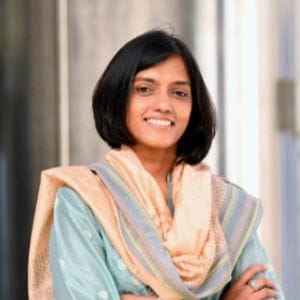
Dr. Ezhil Subbian is the Co-Founder & CEO of String Bio Pvt Ltd. She completed her degree in Industrial and Biotech engineering from Anna University, Chennai, India, and then went on to do a Ph.D. in Molecular Biology and Biochemistry at Oregon Health and Science University in Portland, United States. She then worked for over 12 years in Silicon Valley’s Bay area as part of the biotechnology industry. She worked as a scientist and technical lead across multiple companies before becoming a consultant and then starting up.
Sonal Choudhary
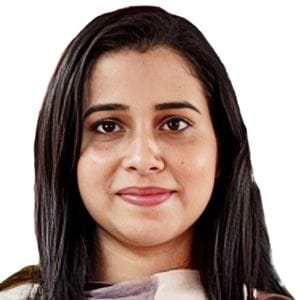
Sonal Choudhary, an active member of ACS, is a DST-INSPIRE Fellow at Panjab University, working under the supervision of Dr. Vishal Sharma, specializing in Material Science (Environment Science). Her thesis research work primarily focuses on the development of natural polysaccharide-based hydrogels, which are designed for the detection and removal of emerging contaminants (heavy metals, oil, surfactants, microplastic, industrial waste, pharmaceutical and cosmetics etc.) in water systems. This innovative work has been recognized and published in several high-impact academic journals (ACS, RSC), including ACS Applied Materials & Interfaces.
In addition to her research, she has successfully obtained a patent for a " Biodegradable packaging film and a process for its preparation thereof." This patent allows her to apply scientific research to practical solutions. Her team has also been working on cost-effective, affordable hydrogel-based water filters that require zero energy consumption for rural areas.
Alpana Singh
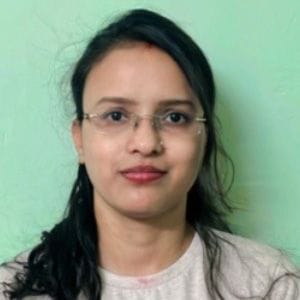
Alpana Singh is a distinguished Ph.D. researcher working under the guidance of Dr. Tushar Sharma from RGIPT Jais. Her expertise spans in natural synthesis that offers sustainable path forward. Embracing natural methods helps in reducing reliance on fossil fuels and mitigating environmental impact. Her research focuses on application of natural surfactants in foaming, emulsification, CO2 capturing and thermal storage, that pave the way for a greener and more sustainable energy future, ensuring energy security for generations to come. Juggling the roles as a researcher and mother, she truly exemplifies resilience and passion, embodying the strength and tenacity of modern women in academia and motherhood.
Explore Noteworthy Articles Published in ACS Journals
Self-Powered Medical Implants Using Triboelectric Technology
Dong-Min Lee, Jinsong Kim, Inah Hyun, and Sang-Woo Kim*
DOI: 10.1021/accountsmr.3c00261
Ether-Based High-Voltage Lithium Metal Batteries: The Road to Commercialization
Jingwei Xiang and Yi-Chun Lu*
DOI: 10.1021/acsnano.4c00110
Thresholds in the Technology-Driven Renewable Energy Transition
Mert Topcu* and Can Turgut
DOI: 10.1021/acs.estlett.3c00696
Fostering Medical Materials Innovation
Inge K. Herrmann* and Andrea A. Schlegel
DOI: 10.1021/acsmaterialsau.2c00054
Tandem Perovskite Solar Cells: Where Academic Challenges Meet Industrial Requirements
Filippo De Angelis*
DOI: 10.1021/acsenergylett.4c00806
Advanced Micro/Nanostructure Silicon-Based Anode Materials for High-Energy Lithium-Ion Batteries: From Liquid- to Solid-State Batteries
Hua Zhong, Denghua Liu, Xinye Yuan, Xiang Xiong, and Kai Han*
DOI: 10.1021/acs.energyfuels.4c00633
Integrated Water-Level Sensor Using Thin-Film Transistor Technology
Seung Jae Moon, Ye Lin Han, Sang Ho Hwang, Seo Jin Kang, Jong Mo Lee, and Byung Seong Bae*
DOI: 10.1021/acsomega.3c03914
Trailblazing Kr/Xe Separation: The Birth of the First Kr-Selective Material
Mona H. Mohamed*, Islam Elzeny, Joshua Samuel, Yimeng Huang, Ahmed S. Helal, Mitchell Galanek, Wenqian Xu, So Yeon Kim, Tony Pham, Lenore Miller, Adam Hogan, Brian Space, Ju Li, and Sameh K. Elsaidi*
DOI: 10.1021/acsami.4c01833
